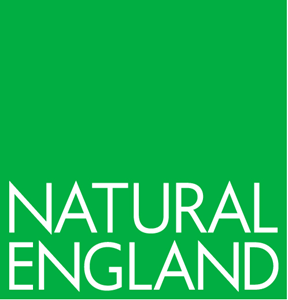Corporate report
Non-qualifying regulatory provisions summary report 2020 to 2021
Updated 21 December 2022
Applies to England
Non-qualifying regulatory provisions - 17 December 2020 to 16 December 2021
| Excluded category [footnote 1] | Summary of measures, including any impact data where available |
|---|---|
| Measures certified as being below de minimis (measures with an equivalent annual net direct cost to business (EANDCB) below +/- £5 million) | During the reporting period, Natural England continued to make amendments to its wildlife licensing regime under the scope of the original SI, (the Wildlife Licence Charges Order 2018). On 1 October 2021, NE started charging for new registrations for 10 x class survey licences: -Great Crested Newt: CL08 survey for GCN Level 1; CL09 GCN level 2; -Hazel dormouse: CL10a Hazel dormice survey Level 1; CL10b Hazel dormice Level 2; -White clawed crayfish: CL11 White clawed crayfish survey; -Bat: CL17 Bat survey Level 1, CL18 Bat Level 2; CL19 Bat Level 3; CL20 Bat Level 4; -Barn owl: CL29 to survey for barn owl for development; The charge for re-registrations will start from 1 January 2022. In 2019 and 2020, NE implemented other charges as permitted in the SI, including for all ‘mitigation’ licences. Changes have also been made to the hen harrier diversionary feeding class licence, but it has not been possible to quantify the costs associated with this as no baseline data was available. New licences for the control of wild birds also became operational on 1 January 2021, and cover the same purposes as currently (conservation, preserving public health and public safety, preventing serious damage). The new general licences are available for use on and around protected sites, provided that the user complies with any conditions that apply to that site and has SSSI (Site of Special Scientific Interest) consent from Natural England where needed. Users will need to ensure they have the appropriate consent from Natural England for activities that may cause damage to protected features on SSSIs. Charges are deemed to be below de minimis due to the relatively low costs of accessing a general licence.EU Regulations, Decisions and Directives and other international obligations, including the implementation of the EU Withdrawal Bill and EU Withdrawal Agreement |
| Measures certified as concerning EU Withdrawal Bill operability measures | Following consideration of the exclusion category there are no measures for the reporting period that qualify for the exclusion. |
| Pro-competition | Following consideration of the exclusion category there are no measures for the reporting period that qualify for the exclusion. |
| Systemic financial risk | Following consideration of the exclusion category there are no measures for the reporting period that qualify for the exclusion. |
| Civil emergencies | Following consideration of the exclusion category there are no measures for the reporting period that qualify for the exclusion. |
| Fines and penalties | Following consideration of the exclusion category there are no measures for the reporting period that qualify for the exclusion. |
| Misuse of drugs | Following consideration of the exclusion category there are no measures for the reporting period that qualify for the exclusion. |
| Measures certified as relating to the safety of tenants, residents and occupants in response to the Grenfell tragedy | Following consideration of the exclusion category there are no measures for the reporting period that qualify for the exclusion. |
| Casework | Between 17 December 2020 and 16 December 2021 Natural England responded to 52,626 items of casework relating to Terrestrial and Marine planning consultations, SSSI and Land Management Consents/Assents and Wildlife licenses. |
| Education, communications and promotion | Natural England has continued to update and make minor amendments to 196 pieces of guidance on GOV.UK, covering wildlife management, protected species and protected areas in response to customer feedback and requests. It made 20 new publications available on its Access to Evidence portal, which includes the Impact of COVID-19 on engagement with green and natural spaces report. It has published 104 items of new information on GOV.UK including corporate reports, updates to its services, policy and The River Otter Beaver Trial: Natural England’s assessment of the trial and advice on the future of the beaver population. Also included was the Natural Capital Evidence Handbook: to support place-based planning and decision-making. It continues to make available, free of charge, maps and geographic information through its MAGIC website as well as updating and maintaining its designated sites database. |
| Activity related to policy development | During the BIT reporting period, Natural England supported Defra in its ongoing consultations around wildlife management and protected species. The organisation also published the new Countryside Code which allows people of all ages and backgrounds to enjoy the health and wellbeing benefits that nature offers, while giving it the respect it deserves. It published the change to the law on when you can burn, when you need a licence and how to burn heather and grass safely. There were also 2 updates on progress with improving coastal access in England and 7 Marine Area Site Packages. It also provided 156 updates relevant to Countryside Stewardship. |
| Changes to management of regulator | Dr Clare Fitzsimmons was appointed to the Board on 13 September 2021. Prof Sue Hartley left the Board on 12 September 2021 having served for 3½ years on the Board. Lord Blencathra, Catherine Dugmore and Henry Robinson have had their contracts extended and will continue on the Board for another term of 3 years. Oliver Harmar was appointed as Chief Operating Officer on 13 September 2021. |
-
For detailed guidance on the exclusion categories, please see https://www.gov.uk/government/publications/better-regulation-framework ↩

